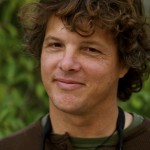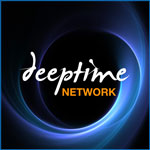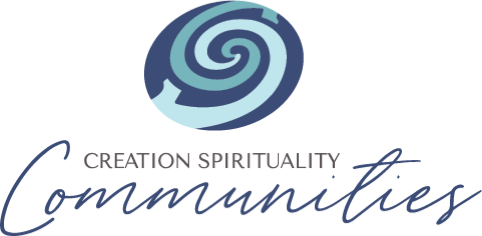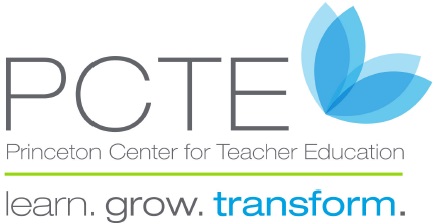Forum Replies Created
-
AuthorPosts
-
-
September 20, 2015 at 11:30 am #4759
 Dr. Rich BlundellParticipant
Dr. Rich BlundellParticipantHi All,
Superb work here Jennifer! Thank you for starting the thread.
I am much looking forward to participating more deeply in this conversation and the continuing development of these principles. Indeed, the subject of my on-going doctoral research is all about how Big History works as transformative learning at the tertiary level. Over the past few years I have been researching the question of the elements of transformation empirically and phenomenologically. I am still in the write up of these researches but can already see a lot of wisdom in the principles as described above.
One concept that I would like to see added is reflexivity. That is, the realization of one’s active, two-way, participation in systems across scales. This is, of course, akin to the idea of ecological-identity or systems-thinking, which I think would either help develop principle 7 “Framework and Continuum” or even constitute its own principle. Reflexivity is not just a research term or a social science concept. Considered fractally, it applies across all scales – form the micro to the macro.
This is just one a nine “elements of transformation” that I have identified empirically in university students who participated in 13-weeks of college level Big History. Will look forward to exploring this in more detail asap!
Rich
-
June 12, 2014 at 8:26 am #2893
 Dr. Rich BlundellParticipant
Dr. Rich BlundellParticipantGreat conversation!
.
I think a key thing here is the acknowledgment that we are integral. A lone bacterium is a different entity than one existing within a living system or ecology – just as we would be different without its presence. And frankly, sometimes I don’t see where one being begins and the other ends.
.
Correct me if I’m wrong James, but perhaps his point is equivalent to how being aware of the stories we live by makes all the difference. It’s ok to live by story, we are story creatures after all, but simply being aware of our stories (especially for Big Historians) is infinitely beneficial. I do agree with James, we need to be knocked of our ego-placed pedestals in order to truly manifest our greater opportunity (if that is indeed what you are saying).R
-
June 6, 2014 at 1:39 pm #2852
 Dr. Rich BlundellParticipant
Dr. Rich BlundellParticipantI generally agree with you James and what you describe is a far too common perspective. However, I do grant humanity some credit for bringing cosmic creativity along (some of) the path that we have (the very realization you are proposing, for example). I think getting out of our own hubris can certainly be part of the narrative too. Don’t really want to argue with your main point though because I think you are right. Which is my case in point; I believe (a human) can sympathize with the way you feel. And I say that, of course, fully acknowledging that my bacteria and I are fully integral.
-
June 2, 2014 at 9:37 am #2841
 Dr. Rich BlundellParticipant
Dr. Rich BlundellParticipantKyle, John, Jennifer and Orla,
.
Thanks for all the comments! Expressions of interest in beta testing have really poured in over the past week, so I think it is time to cease the request for more testers. Those of you who offered above, would you mind using the form available through the website (link in above post)? That way we’ll be sure to have the right email to correspond with you and keep things organized. Would love to get your feedback, especially as you folks think about and apply Cosmic Education and the Montessori Philosophies.
.
Speaking of Montessori, I am eager to learn more. I have not had the chance to fully explore the intersections of BH and CE, but agree they are very resonant. So, Kyle, Yes, let’s continue the discussion. Can you suggest a VERY concise piece of text or resource that would educate me (keeping in mind that I am already swamped as I prepare for submitting my dissertation). Either way, I look forward to promoting both.
.
Orla, thanks for enhancing my understanding of the more inclusive expressions of experiential learning in your thesis. I know that Dewey was at least aware of the diversity of sources of experiential learning but did not address them specifically. His writings were more about establishing the foundations of a new theory of experiential learning, which at the time was revolutionary enough. I’ll look forward to furthering this discussion – perhaps in a new thread?
.
Gratefully,
Rich
.
PS – Orla, when I saw your phrase “Dinosaur phone” I got really excited. Then I realized that what you really meant was a Dinosaur “of a” phone. But you now have me thinking eagerly about the Cosmosis6 App that will cover between about 200-65 million years ago! -
May 27, 2014 at 9:11 pm #2816
 Dr. Rich BlundellParticipant
Dr. Rich BlundellParticipantImogene, OMG is right!! I absolutely do LOVE Divine Sparks. It just lifted me! When I saw that celestial fruit, and that exultant frog, and that curious chipmunk, and then those googley-eyed hands, I could just feel your love of nature and creativity – and I could feel my own love of nature, and creativity too. How did you do that? Just wow! I watched it again and again and felt like a child again, immersed in the wonder of it all each time! And that music, and soundtrack, just perfect! You have really captured the essence of cosmic creativity!. Thank you so much for sharing that!
-
May 27, 2014 at 4:21 pm #2811
 Dr. Rich BlundellParticipant
Dr. Rich BlundellParticipantJennifer and Karen, thanks for the feedback and kind words! Glad you are liking the philosophy behind the app.
.
There is so much to love about Dewey. There is, of course, the well-understood value of experience-as-education, but one of my favorite insights of Dewey’s is how he articulated the reciprocal of this. In other words, yes, there can be great educational value in our experiences, this is pretty clear, but what about the value of education-as-experience?! This 180-degree interpretation is rarely articulated or seriously pursued in education.
.
And Dewey does not use the term “experience” lightly. He offers a rich description of experience that is imbued with meaning. He goes so far as to distinguish between ordinary, run-of-the-mill experience (lowercase “e”) and AN Experience (uppercase “E”). For Dewey, AN Experience has a narrative quality to it; it piques interest, motivates further investigation, and culminates with personally meaningful payoffs (epiphanies??). This is MUCH more than just seeing the value of experience in education, it is about the experiential value of education itself. When learning is AN Experience first, it can be more meaningful – as opposed to just factual knowledge.
.
For those not inclined to download my article (Which is available here by the way), this is one of the essential arguments I am making both in the article and putting into practice (hopefully) through the app.
.
The other fundamental tactic of the app (not So much Dewey’s as my own – or perhaps Goethe’s) is to provide a phenomenological opportunity (or lived-experience) upon which to build conceptual knowledge. My argument here is that we are more inclined to understand and construct integral knowledge on a phenomenological foundation. This is another important subject altogether but I think it is critical for building empathy.
.
The way I see it, Dewey was way ahead of his time. It’s only now, 8 decades later, that the technology has caught up and we are able to provide the kind of rich “in situ” learning Experiences (uppercase E) that Dewey was advocating for.
.
Rich
-
March 12, 2014 at 8:36 pm #2304
 Dr. Rich BlundellParticipant
Dr. Rich BlundellParticipantDear Orla, Jennifer, and Cynthia,
Thank your for the thoughtful replies and links to resources. I am perusing them now.
You are right, this is a Big Topic with a lot of voices. As a grad-student, trying to carve out a niche, it feels like I’m in a disciplinary meat grinder. There are multiple rigor-bars that need to be reached, and legacy-hoops that need to be jumped through for each discipline I touch. Don’t get me wrong, I am relishing the challenge, but there are a lot of risks – as there should be. I can’t imagine anything more important and exciting.
My initial question, then, seems to be settling into the distinction between Big History research AS a historical research pursuit and Big History as the SUBJECT of research. This boils down to the nuts and bolts of research, but this stuff really needs to be sorted out, especially at the level of a PhD dissertation. So, the more I think about it, “hermeneutic turn” may actually be the wrong term. It’s too inclusive, as if the whole field needs to shift. That’s not quite right. Perhaps, it’s more like the development of a “hermeneutic strand” that acknowledges how interpretation takes on different meanings for the different pursuits. In other words, interpretation has a different role to play in a Big History AS research method context then it does in a more educational or social science pursuit with Big History as the subject. Either way, it’s got to be rigorous enough to survive in a fragmented academic landscape. That is a tough challenge.
This makes more sense and I’ll continue to think about it…. Great conversation. Thanks!
And yes Cynthia, I hope to present not only the results of some empirical work in transformative learning at the IBHA, but also part of my creative practice. Looking forward to seeing you all there!
Rich
-
-
AuthorPosts






